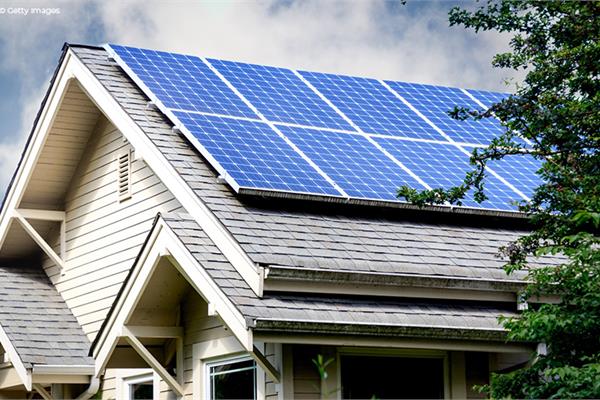
Swift Coat Inc., an Arizona State University spin-out company specializing in nano-coatings, was selected to receive a $1 million award from the U.S. Department of Energy's Solar Energy Technologies Office (SETO) to advance innovations in solar manufacturing. This project aims to reduce efficiency losses in solar panels due to the build-up of dirt on the panel's surface that blocks sunlight.
Swift Coat aims to develop a solar glass coating that combines industry standard anti-reflective properties with photocatalytic titanium dioxide that breaks down organic materials on solar modules, potentially increasing energy generation by 3% over standard panels.
"Everyone has seen how dirty their windows can get after a dust storm, but few realize the same happens to their solar panels," says Peter Firth, Swift Coat CEO. "This build-up of dirt can reduce the power output of panels by up to 30%, and, if you aren't the type to climb up on your roof and clean them, this loss of efficiency can persist for months."
Swift Coat's solution to this problem is a thin coating composed of nanoparticles.
"The special nanoparticles in our coating perform a chemical reaction powered by ultraviolet sunlight that actively breaks down dirt, keeping the panel clean and operating at optimal efficiency," explains Dr. Shannon Poges, Ph.D., Swift Coat's Senior Engineer.
The company's solution involves two coatings - first, the antireflection coating that already exists on all standard solar modules. The second coating that Swift Coat is aiming to incorporate is photocatalytic titania (titanium dioxide) - which actively decomposes soilants and maintains a hydrophilic surface.
"Titania-containing coatings have been used for self-cleaning—with 15 years of field data—in the residential windows market, but those coatings have much too high reflectance to be considered for PV module glass. Swift Coat's innovation is a coating with high photocatalytic activity and high transmittance, plus the requisite durability for module lifetimes", explains Swift Coat co-founder Zachary Holman.
This award will help Swift Coat grow towards commercialization of its coating technology, which has demonstrated applicability in energy, defence and building-material industries. Swift Coat expects to offer a product that customers could integrate into the manufacturing lines by the end of 2021.